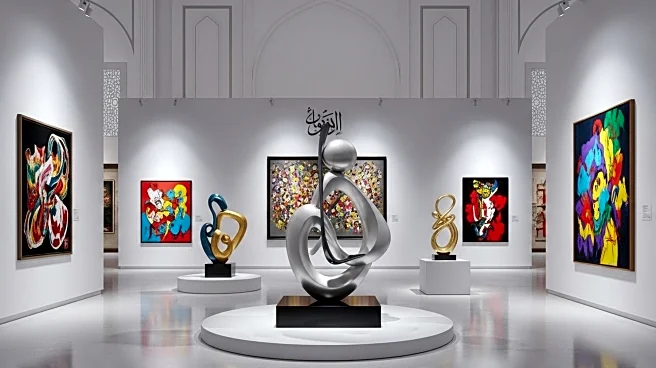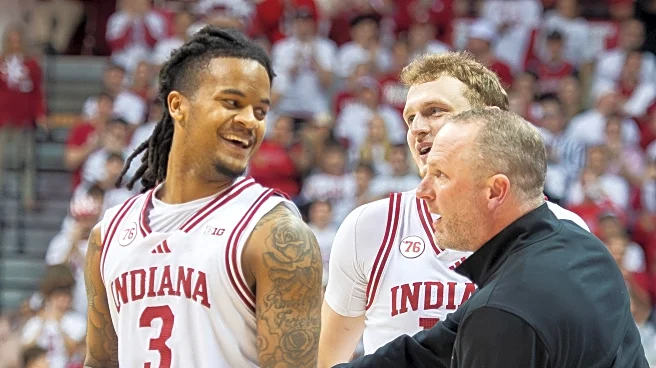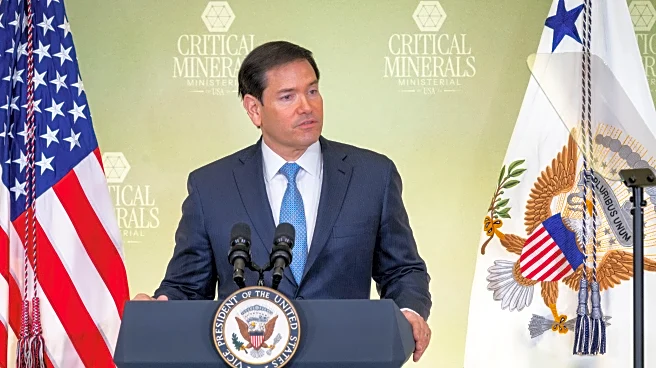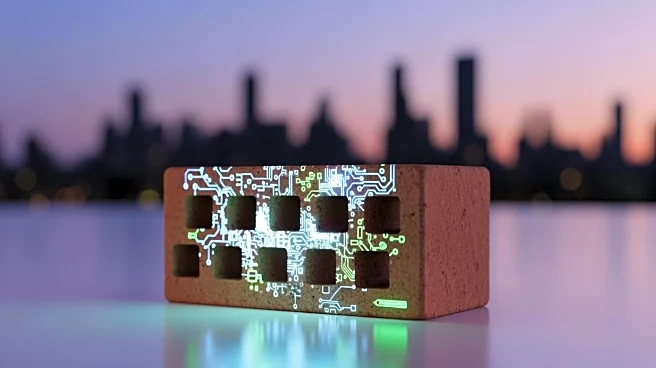What's Happening?
Frieze, a London-based art fair and media brand, is set to expand its presence in the Middle East by taking over the existing Abu Dhabi Art fair. The event will be rebranded as Frieze Abu Dhabi and is scheduled to relaunch next November. This marks Frieze's first venture into the Middle Eastern art market, a region known for its wealth and growing interest in art. The announcement comes shortly before Frieze's flagship events, Frieze London and Frieze Masters, and follows the acquisition of Frieze by Ari Emmanuel. The move is seen as a strategic effort to compete with rival Art Basel, which plans to launch its own Gulf fair in Doha, Qatar, in February.
Why It's Important?
The expansion of Frieze into Abu Dhabi signifies a growing interest in the Middle Eastern art market, which is becoming increasingly competitive. By establishing a presence in Abu Dhabi, Frieze aims to tap into the region's affluent art collectors and enthusiasts, potentially boosting its global influence and revenue. This move could also stimulate the local art scene, providing opportunities for artists and galleries in the region. The competition between Frieze and Art Basel in the Gulf highlights the strategic importance of the Middle East in the global art market, as both brands seek to capitalize on new growth opportunities following a period of declining sales worldwide.
What's Next?
Frieze Abu Dhabi is set to launch next November, and preparations for the event are likely to intensify in the coming months. Stakeholders in the art community, including artists, galleries, and collectors, will be closely watching the developments as Frieze establishes its presence in the region. The success of Frieze Abu Dhabi could influence future expansions and collaborations within the Middle Eastern art market. Additionally, the launch of Art Basel's fair in Doha will be a key event to monitor, as it may set the tone for future art fairs in the Gulf.
Beyond the Headlines
The entry of major art fairs like Frieze and Art Basel into the Middle East could have broader cultural implications, potentially fostering greater cross-cultural exchanges and collaborations. This expansion may also encourage local governments to invest more in cultural infrastructure and initiatives, further enhancing the region's reputation as a global art hub. The presence of these international brands could also lead to increased visibility for Middle Eastern artists on the global stage.











